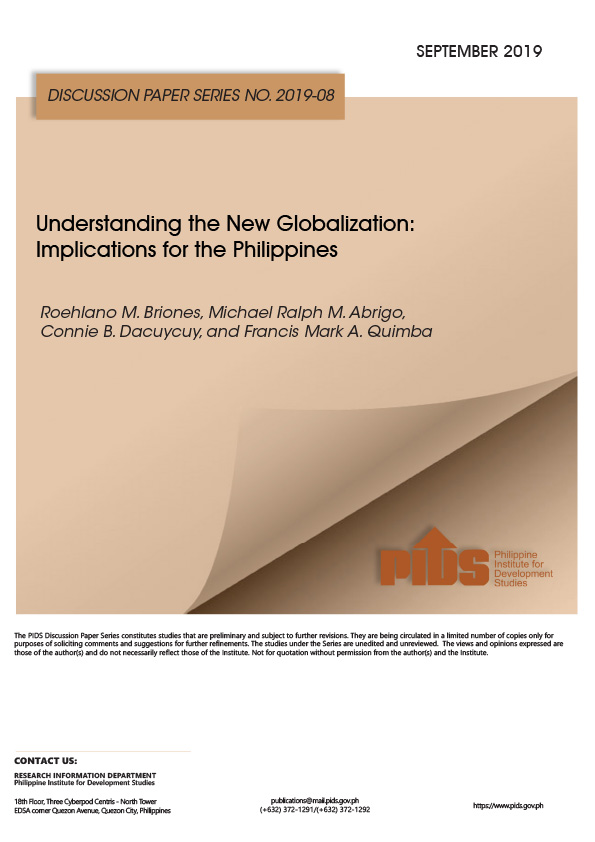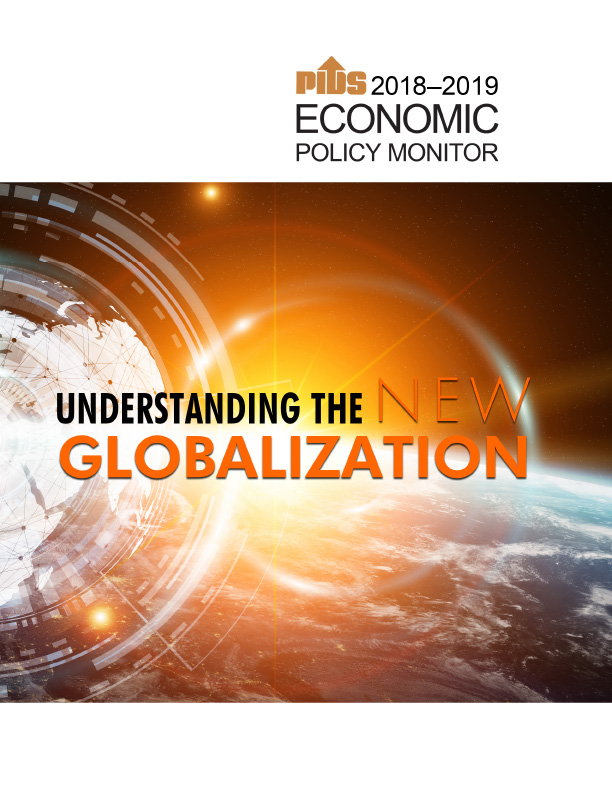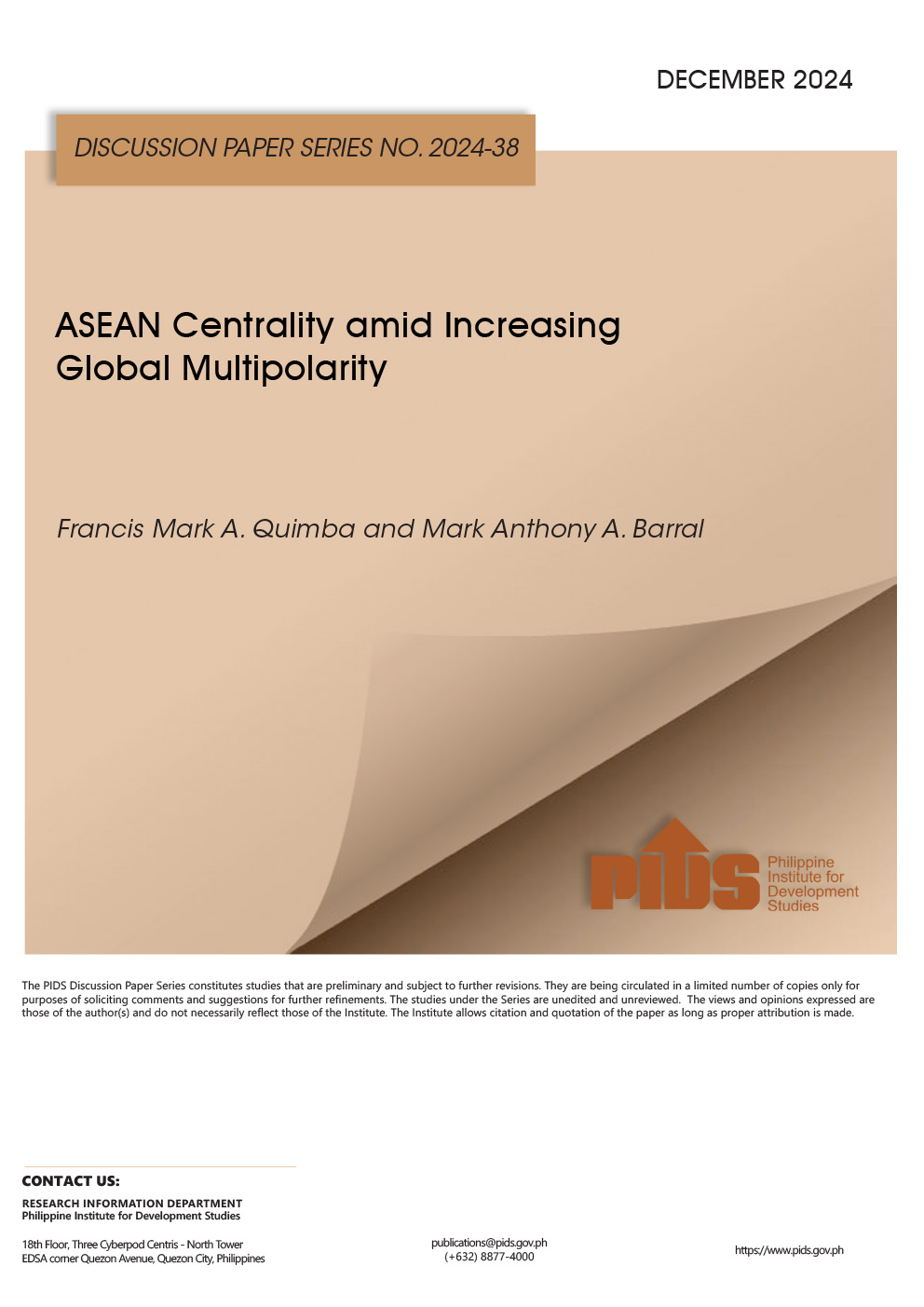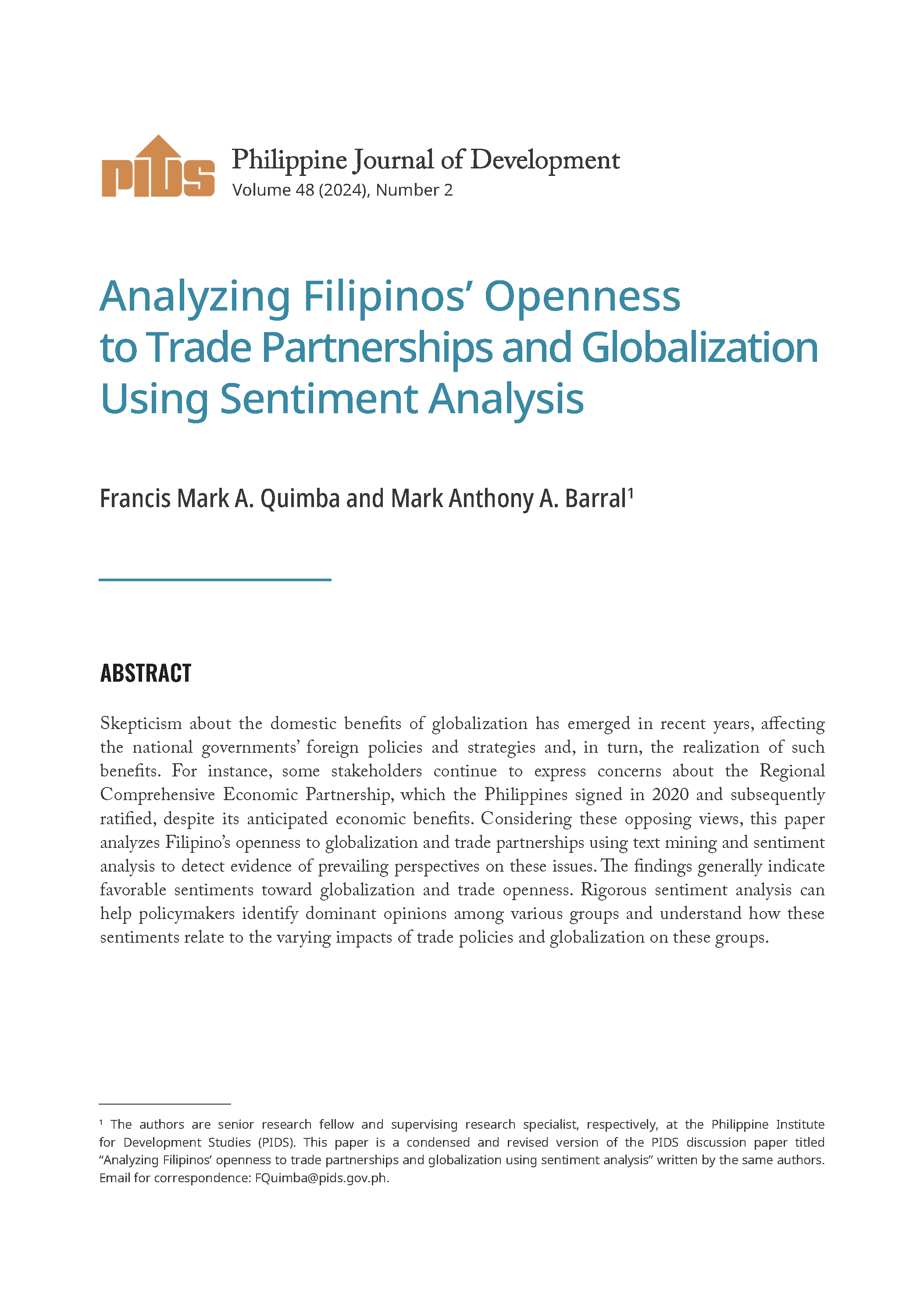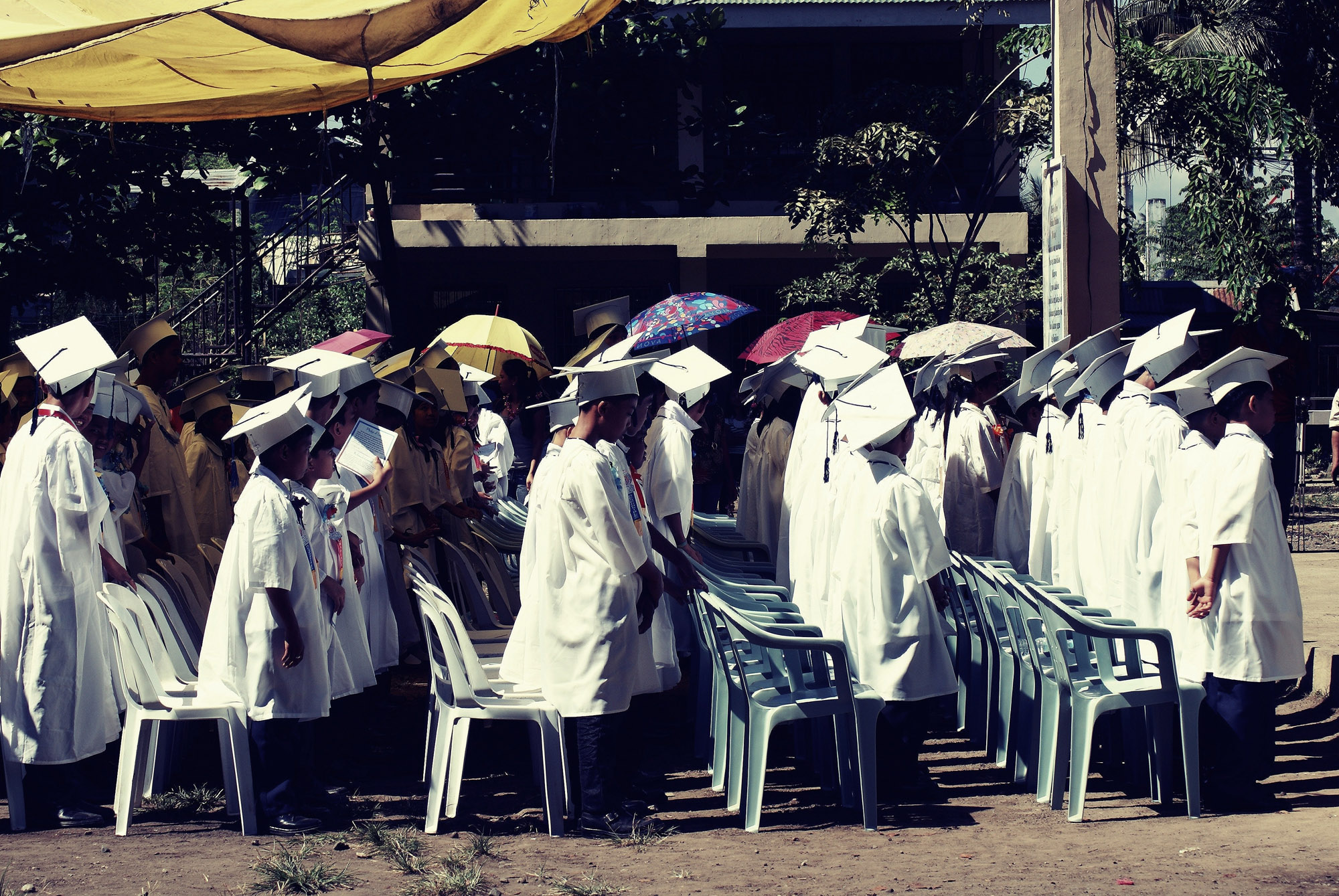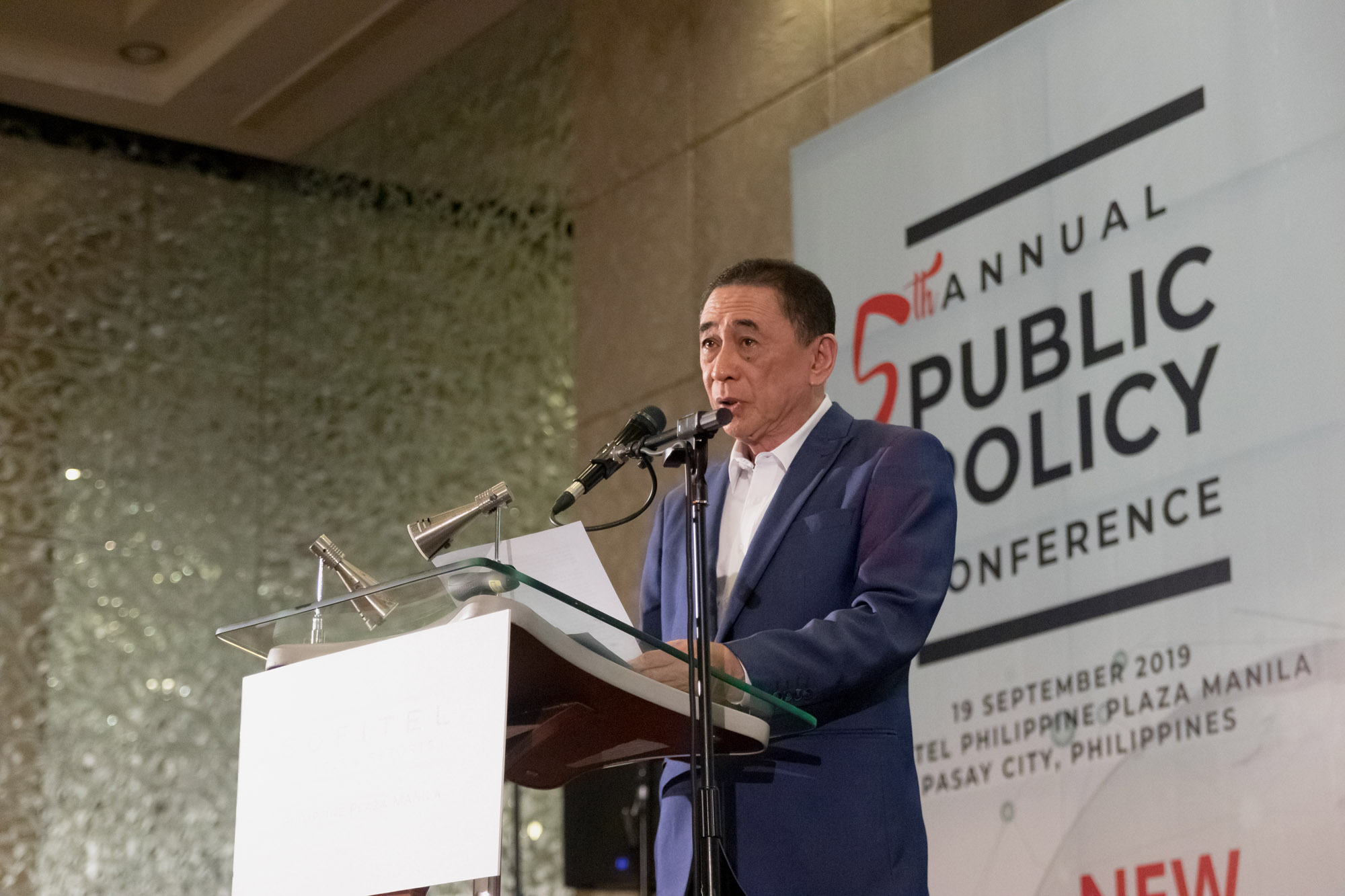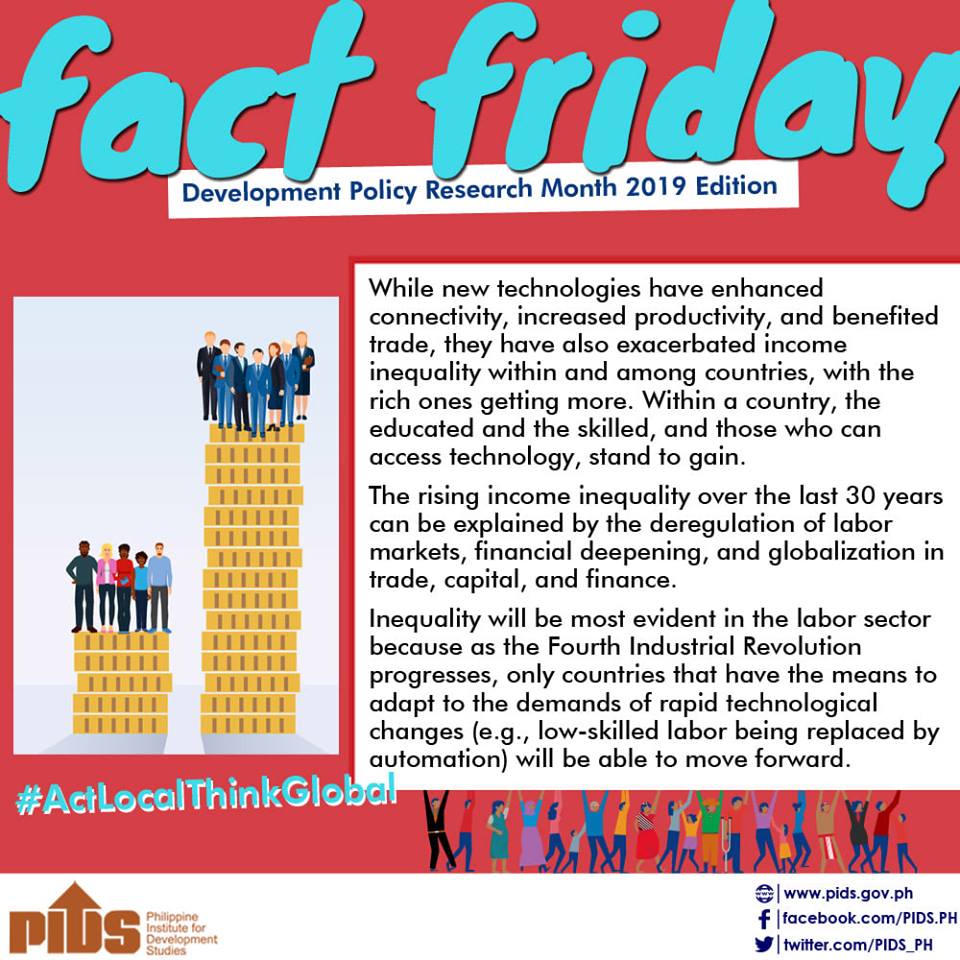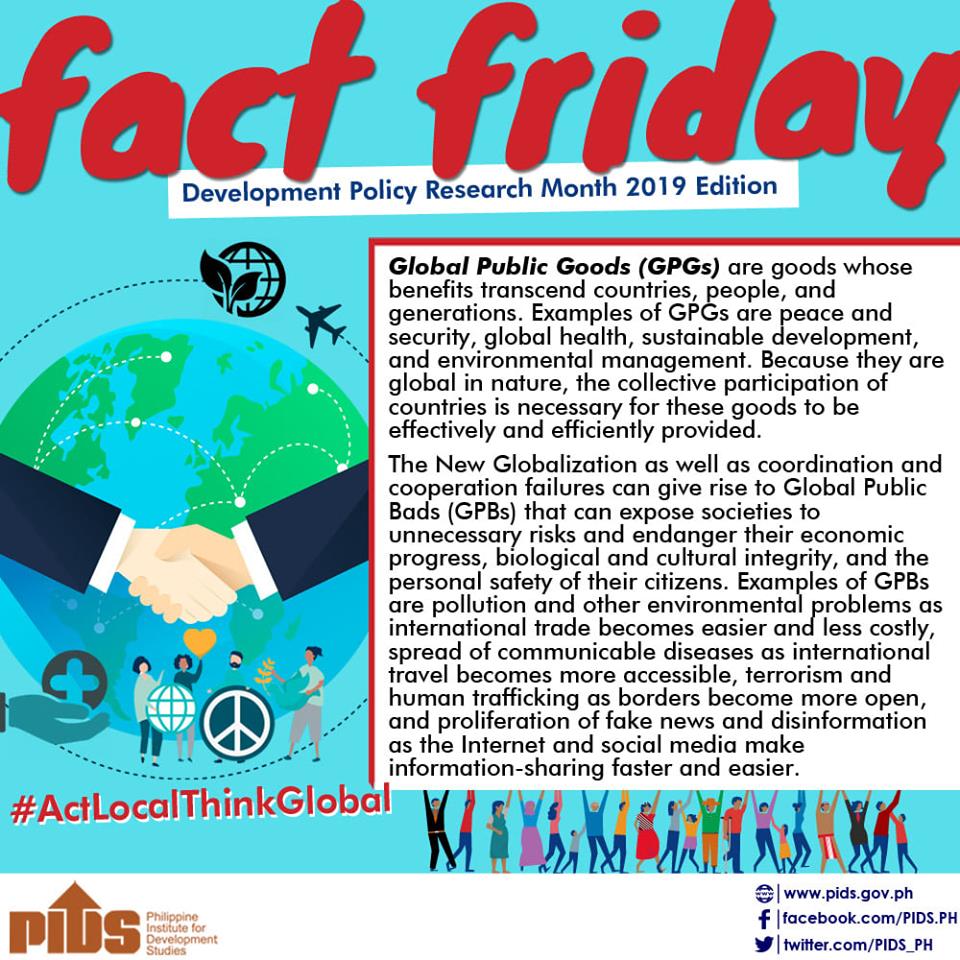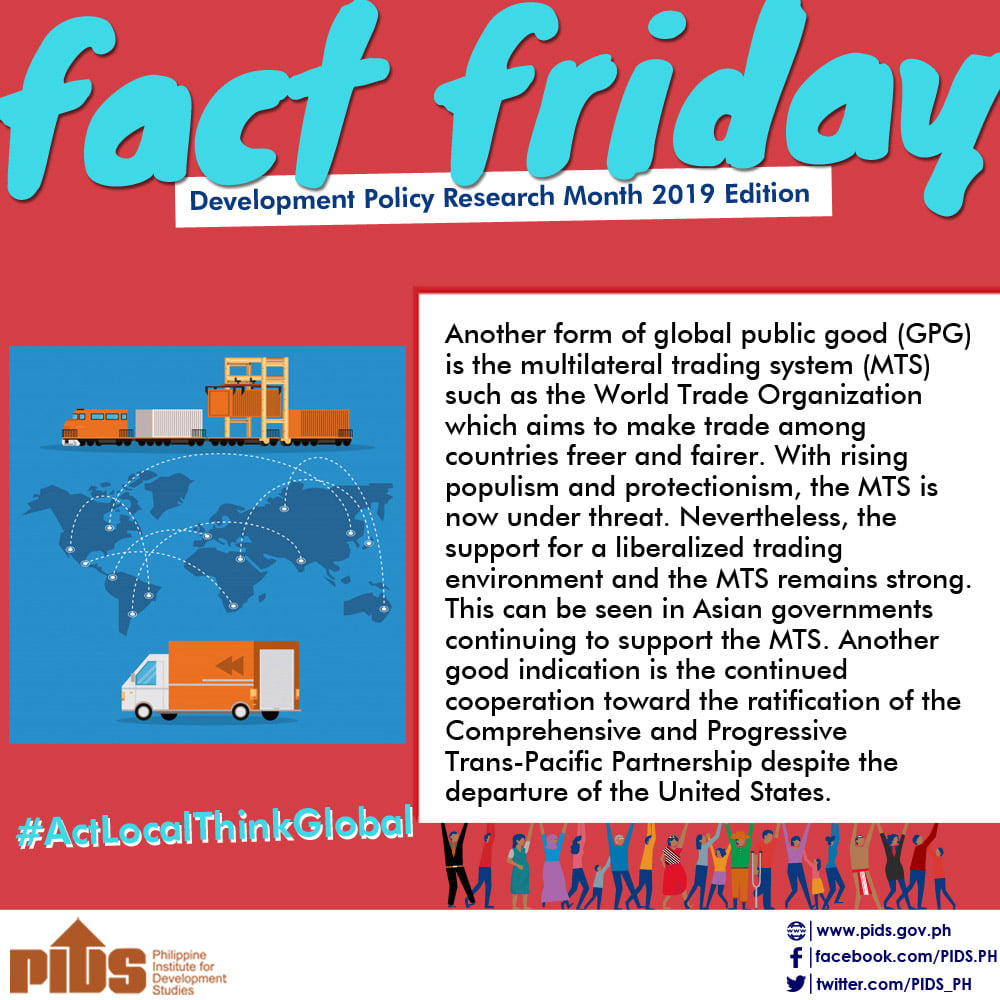The world economy has undergone at least three waves of globalization; currently the fourth wave is on-going, sweeping away old certainties are being overturned. The Philippines, which has hitherto been reaping the growth dividend from the third wave of globalization owing to a functioning democracy, achieving monetary stability, liberalization of trade, and related market reforms. In a fast-changing world, the strategies forged previously may need a fundamental rethinking to enable the country to survive, and thrive, in an era of global transition. There are four key features of the new globalization: economic restructuring; worsening global inequality; threats to international cooperation in providing global public goods (GPGs); and weakening of traditional ties of social cohesion and trust. The paper develops set of recommendations for policymakers and other stakeholders in the Philippines. Navigating the new globalization will be difficult, but not impossible: despite the drift towards mistrust and isolation, the paper argues for a renewed drive towards international cooperation, collaboration among public and private organizations, and adaptive policies in dealing with rapid economic and social change.
Citations
This publication has been cited 5 times
- BusinessMirror. 2019. Diversifying PHL exports portfolio amid Industry 4.0. BusinessMirror.
- Habito, Cielito. 2020. Widening and narrowing gaps. Inquirer.
- Habito, Cielito. 2020. Trust and social cohesion. Philippine Daily Inquirer.
- Habito, Cielito. 2020. Think local, act global?. Inquirer.
- Philippine Information Agency. 2019. Embrace innovation to adjust to the new globalization. Philippine Information Agency.

